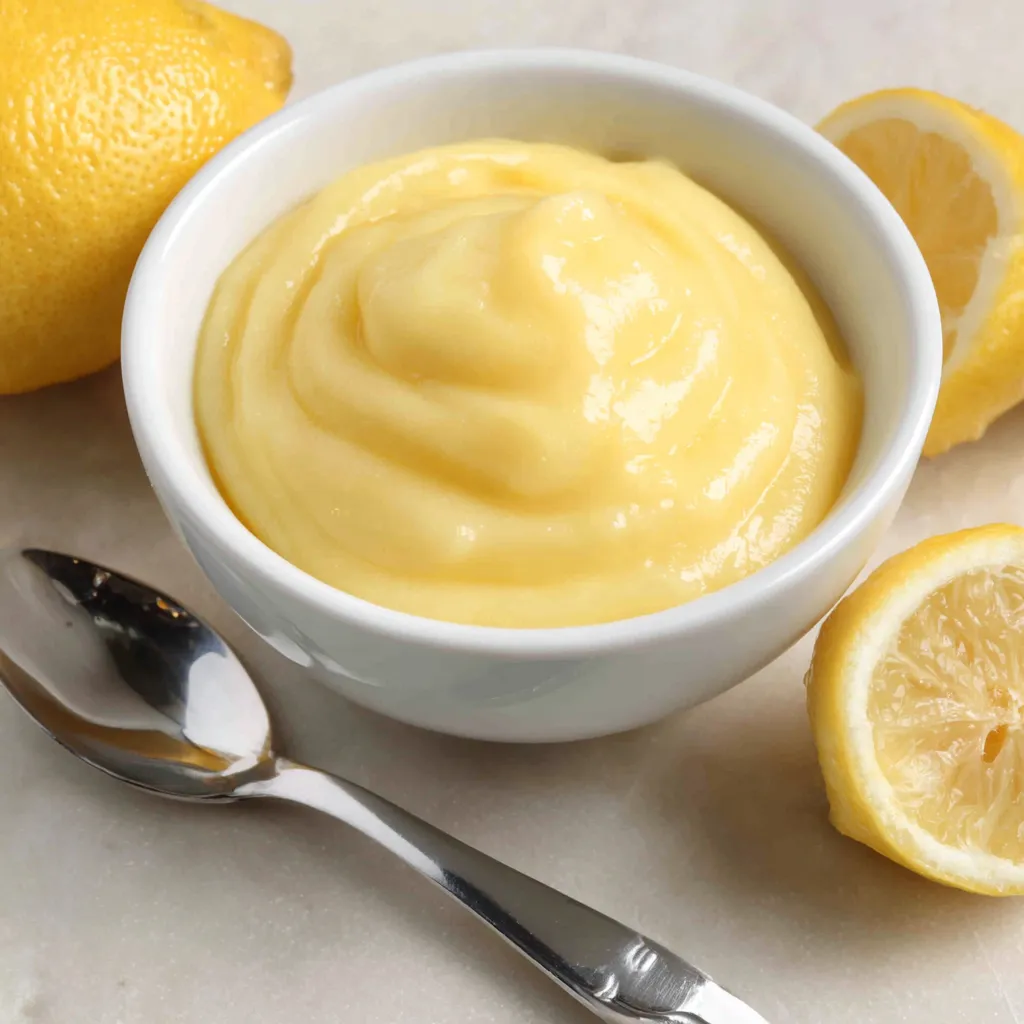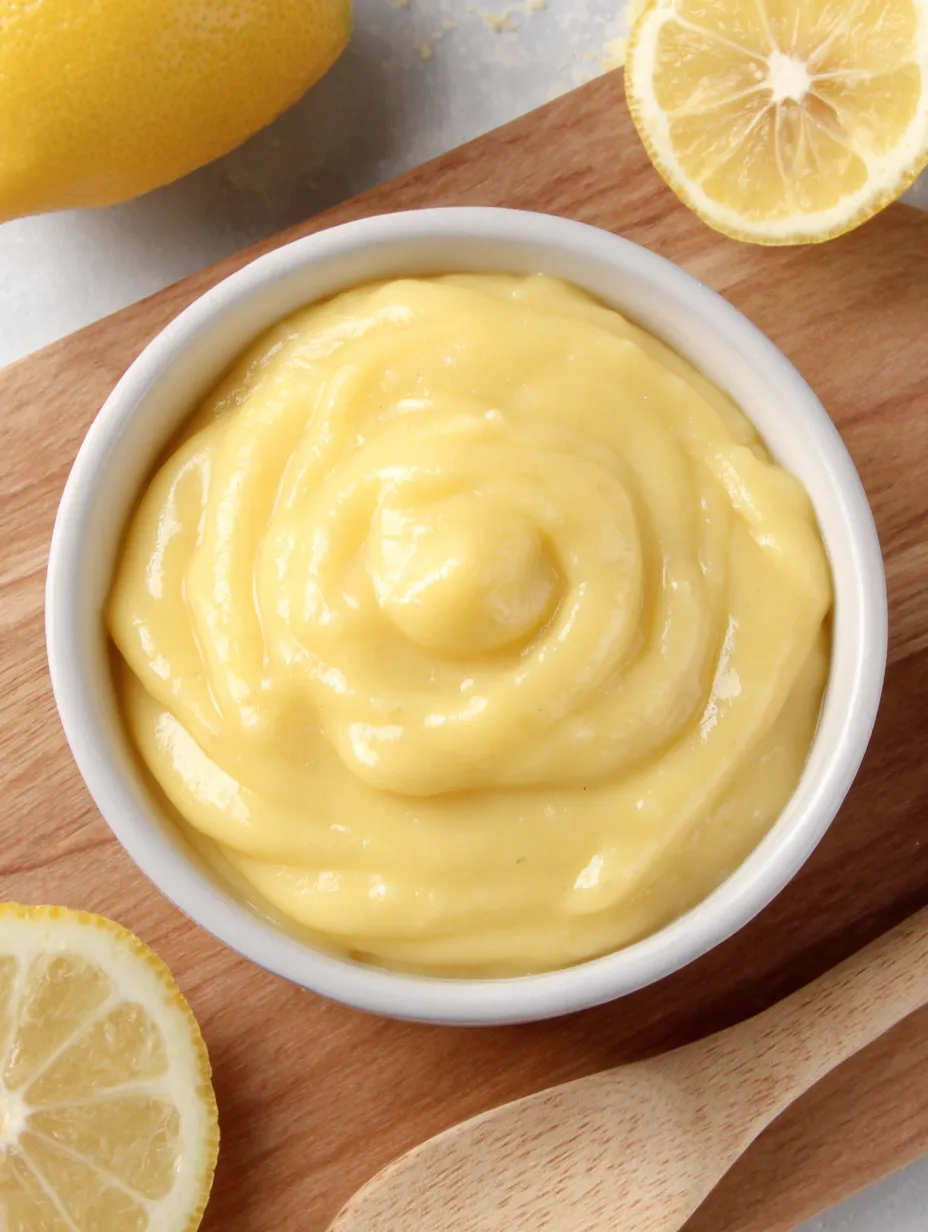 Save
Save
This silky small batch lemon curd comes together in just ten minutes and brings a bright citrus burst to any treat you pair with it. Whether you want enough for a weekend of scones or to fill a single tart, this recipe delivers luscious results without leftovers lingering in your fridge.
My first time making this with my daughter, we could not stop eating it straight from the spoon. We both agreed it was better than anything from a jar and now it is our little baking tradition every spring.
Ingredients
- Granulated sugar: adds sweetness and balances tartness choose fine white sugar for best results
- Lemon zest: delivers the signature tang and aroma zest only the yellow part for pure flavor
- Large egg: acts as the thickener use the freshest eggs for the silkiest curd
- Lemon juice: makes it bright and zingy always choose freshly squeezed for peak citrus notes
- Salted butter: gives body and finish and a hint of savory richness use good-quality European-style butter if you can
- Egg yolk: for extra rich curd optional but makes it even more satiny and thick
- Fresh lemons: are crucial for both juice and zest roll them on the counter to release more juice before cutting
Step-by-Step Instructions
- Zest and Sugar Fusion:
- Rub freshly grated lemon zest into the sugar using your fingertips or the back of a spoon for one to two minutes. This helps the sugar absorb all the fragrant citrus oils and amps up the flavor.
- Mix Eggs and Juice:
- In the same bowl or saucepan add the whole egg plus the extra yolk if you want it extra rich. Whisk until there are no streaks remaining and the mixture looks smooth pale and blended. Whisk in the lemon juice slowly to avoid splashing.
- Cook Gently:
- If using a double boiler set your bowl over a pan of barely simmering water. Add the butter in small pieces. Gently whisk or stir constantly for seven to ten minutes making sure to scrape sides and bottom. The curd should slowly thicken and coat the back of a spoon. If using a saucepan over low heat stir non-stop and do not step away or the eggs may curdle.
- Strain and Chill:
- Immediately pour the hot curd through a fine sieve into a clean jar or bowl. Press gently so the curd passes through but any bits of zest or cooked egg are left behind. Press a piece of plastic wrap right onto the surface to prevent a skin and refrigerate until cold.

My favorite thing about this curd is the intense brightness you get from using both zest and juice. One spring I used it for topping pavlova at a family get-together and everyone raved for weeks. Now it is a must-have for all our celebrations.
Storage Tips
Store the lemon curd in an airtight glass container for best freshness. Place plastic wrap directly on the surface before sealing to avoid a skin. It will keep perfectly in the refrigerator for up to seven days. Freeze in a small freezer-safe container for longer storage up to two months just thaw in the fridge before using.
Ingredient Substitutions
For unsalted butter add a small pinch of fine salt for extra flavor. If you want the curd less rich simply use only the whole egg. In a pinch bottled lemon juice will work but you will miss the zing of fresh zest.
Serving Suggestions
This lemon curd is heavenly dolloped on scones croissants or pancakes. Pipe it into mini tart shells for an elegant dessert add a spoonful to yogurt for breakfast or swirl it into whipped cream for topping cakes.

Cultural and Historical Context
Lemon curd first appeared at English tea tables in the late 1800s as a luxurious alternative to jam. Its tart buttery flavor made it popular for tea sandwiches and sweets. To me making lemon curd always feels a little fancy and timeless like recreating a bit of European patisserie in your kitchen.
Common Recipe Questions
- → Can I use unsalted butter instead of salted?
Yes, unsalted butter can be used. Consider adding a small pinch of salt to balance the sweetness if using unsalted butter.
- → How do I avoid curdling the eggs?
Use gentle heat and constant stirring. Using a double boiler minimizes the risk of overheating and curdling.
- → What is the purpose of straining the curd?
Straining removes any bits of cooked egg and lemon zest, resulting in a perfectly smooth and silky curd texture.
- → How long will homemade lemon curd last?
Stored in an airtight container in the refrigerator, it stays fresh for up to one week.
- → Can I make it extra rich and thick?
For a richer, thicker consistency, include an additional egg yolk in the mixture before cooking.
- → How should I use small batch lemon curd?
Spread it on toast, fill tarts, swirl into yogurt, or layer it in cakes for a burst of citrus flavor.
